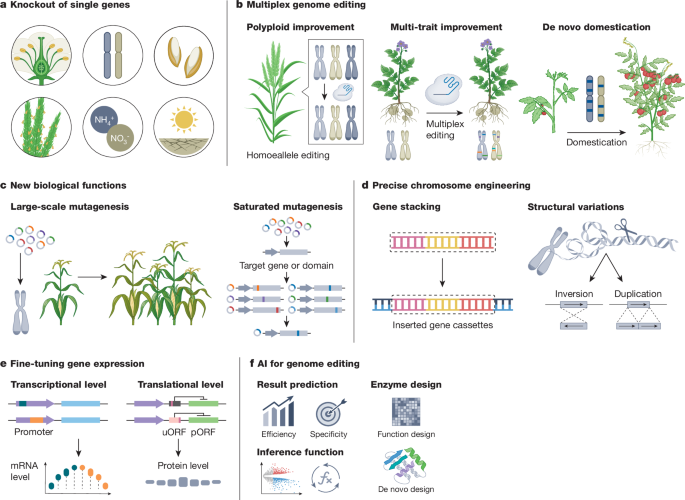The global food security landscape is increasingly challenged by factors such as climate change and population growth. A meta-analysis by van Dijk et al. (2021) projected food demand and identified populations at risk of hunger through 2050. Concurrently, Hasegawa et al. (2021) emphasized the heightened risks of food insecurity due to extreme climate events. Advances in agricultural science are pivotal; translational genomics is showcasing promises in crop resilience, notably through studies on Gγ proteins (Zhang et al., 2023) and genome editing (e.g., Li et al., 2018). Multi-omics and phenomics applications are transforming plant breeding strategies, revealing genetic architectures linked to critical traits, such as drought resistance and yield (Wang et al., 2023). With innovations like CRISPR and high-throughput phenotyping, the integration of genetic insights and advanced technologies is essential for developing crop varieties capable of overcoming emerging challenges in agriculture while sustaining global food security.
Source link

Share
Read more